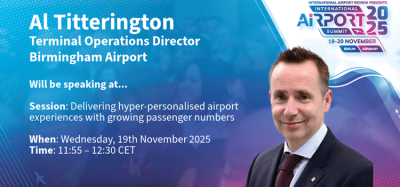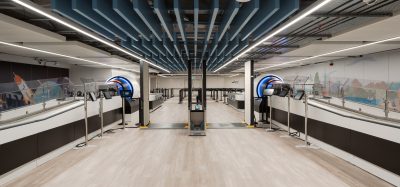Interview Spotlight: Engr. Badr Al Meer, Hamad International Airport
- Like
- Digg
- Del
- Tumblr
- VKontakte
- Buffer
- Love This
- Odnoklassniki
- Meneame
- Blogger
- Amazon
- Yahoo Mail
- Gmail
- AOL
- Newsvine
- HackerNews
- Evernote
- MySpace
- Mail.ru
- Viadeo
- Line
- Comments
- Yummly
- SMS
- Viber
- Telegram
- Subscribe
- Skype
- Facebook Messenger
- Kakao
- LiveJournal
- Yammer
- Edgar
- Fintel
- Mix
- Instapaper
- Copy Link
Posted: 14 March 2019 | Engr. Badr Al Meer | No comments yet
Engr. Badr Al Meer, Chief Operating Officer at Hamad International Airport (HIA), discusses seamless travel initiatives, the key to customer satisfaction in the airport setting, and the launch of the Smart Airport programme in place at HIA.
How can new technologies help aid airport operations?
The use of new technologies and automated touch points are reshaping airport operations through increased efficiency and independence for our travellers. Key trends, such as the use of biometrics and facial recognition, artificial intelligence and robotics are increasingly being implemented to bypass lines at check-in, boarding and immigration. This technology will offer travellers the option to pass through each check point from entry to boarding without having to present any travel documentation.
Our objective in implementing cutting-edge technology is to offer our passengers a highly-personalised, connected, and hassle-free experience. Through our partnership with technology experts SITA and CCM, we successfully trialled and installed 62 next-generation self-check-in and 12 self-service bag-drop kiosks with future biometric technology capability, enabling passengers to check in, print their boarding passes and bag tags, as well as tag their bags and drop them at the kiosks before proceeding to border control. An automated visa document check, which is the first of its kind in any major airport world-wide, has also been implemented. With the successful launch of the first major phase of our Smart Airport programme, our five-star home carrier Qatar Airways is processing more than 25 per cent of its passengers through self-service check-in and bag-drop.
The implementation of key technologies results in increased autonomy as well as more efficient airport travel, and key players in the industry are capitalising on these to transform airport processes and ways passengers are experiencing airport travel.
Why is it important for airports to focus on passenger flow and customer satisfaction when implementing operations?
Passengers are continuously seeking out the most efficient, convenient and personalised airports to travel through. HIA is expected to see an increase of passengers in 2019 and optimising passenger flow and offering best-in-class customer service is one of many facets that distinguishes us from our competitors.
We prioritise cutting-edge technology and world-class customer service. Our successful and ongoing implementation of front-line technology solutions resulted in an industry-leading transfer security screening through shorter queuing times at security points that can accommodate up to 6,000 passengers during peak hours. Through the introduction of additional transfer points, 95 per cent of our transfer passengers queue for less than five minutes. We were also recently ranked as the second best airport in the world with 85.41 per cent on-time performance (OTP) in accordance to OAG’s OTP Report in the major airports category (from 20 to 30 million passengers).
To further enhance customer satisfaction in transfers areas, a new customer service and security training package has been introduced. Five-hundred of our staff participated in an extensive and challenging six-week training programme to ensure that high safety and security standards are met while simultaneously providing excellent customer service.
What initiatives is HIA currently working on?
HIA’s latest initiative is the next phase of our expansion plan which will enable us to accommodate over 53 million passengers annually by 2022, a significant increase from our current 30 million passenger capacity.
In addition to increased space and capacity, the construction of the Airport City will provide significant future investment opportunities including a free trade zone, office and business complex, and hotels. A new cargo terminal will also be constructed, increasing HIA’s capacity to three million tonnes per year and accommodating the expected surge in freight traffic. The developments in infrastructure play a key role in Qatar’s preparations to host the 2022 FIFA World Cup, where the country will witness a spike in visitors. We are working closely with our stakeholders and the Supreme Committee for Delivery and Legacy on implementing these exciting developments.
Issue
Related topics
Aeronautical revenue, Information technology (IT), Regulation and Legislation, Safety, Terminal operations

















